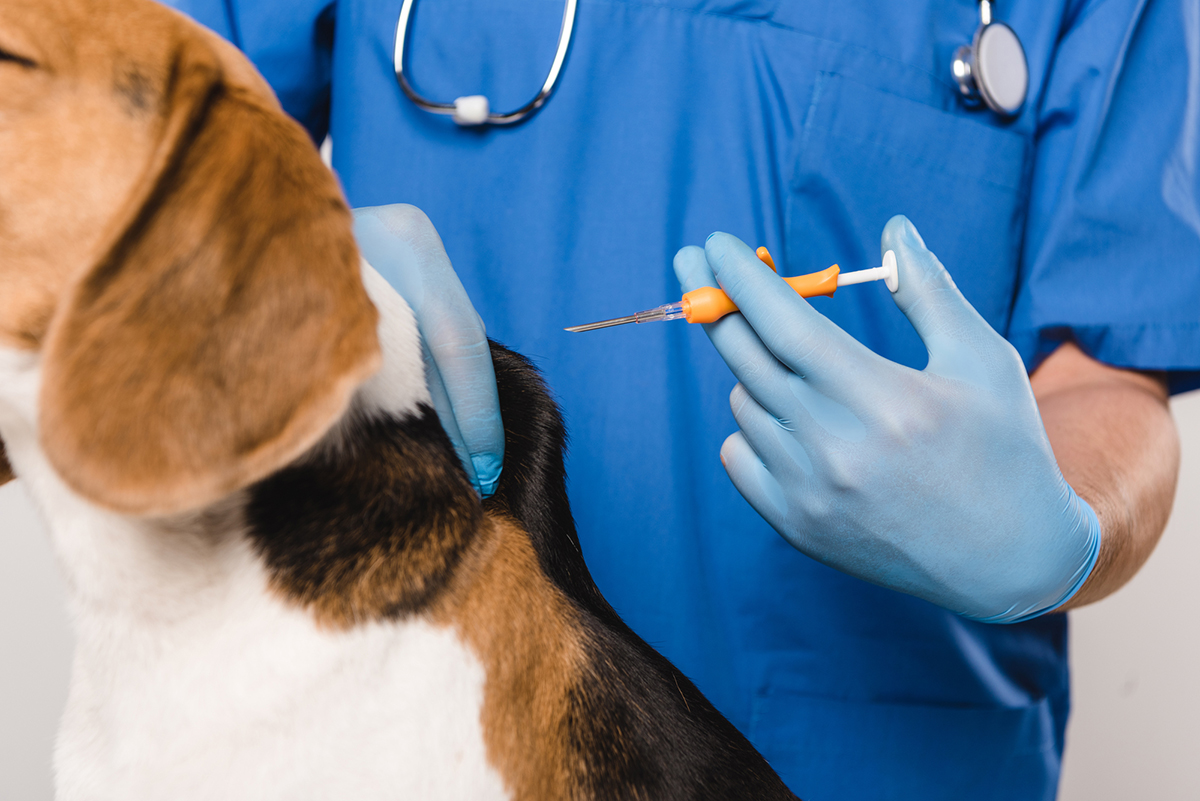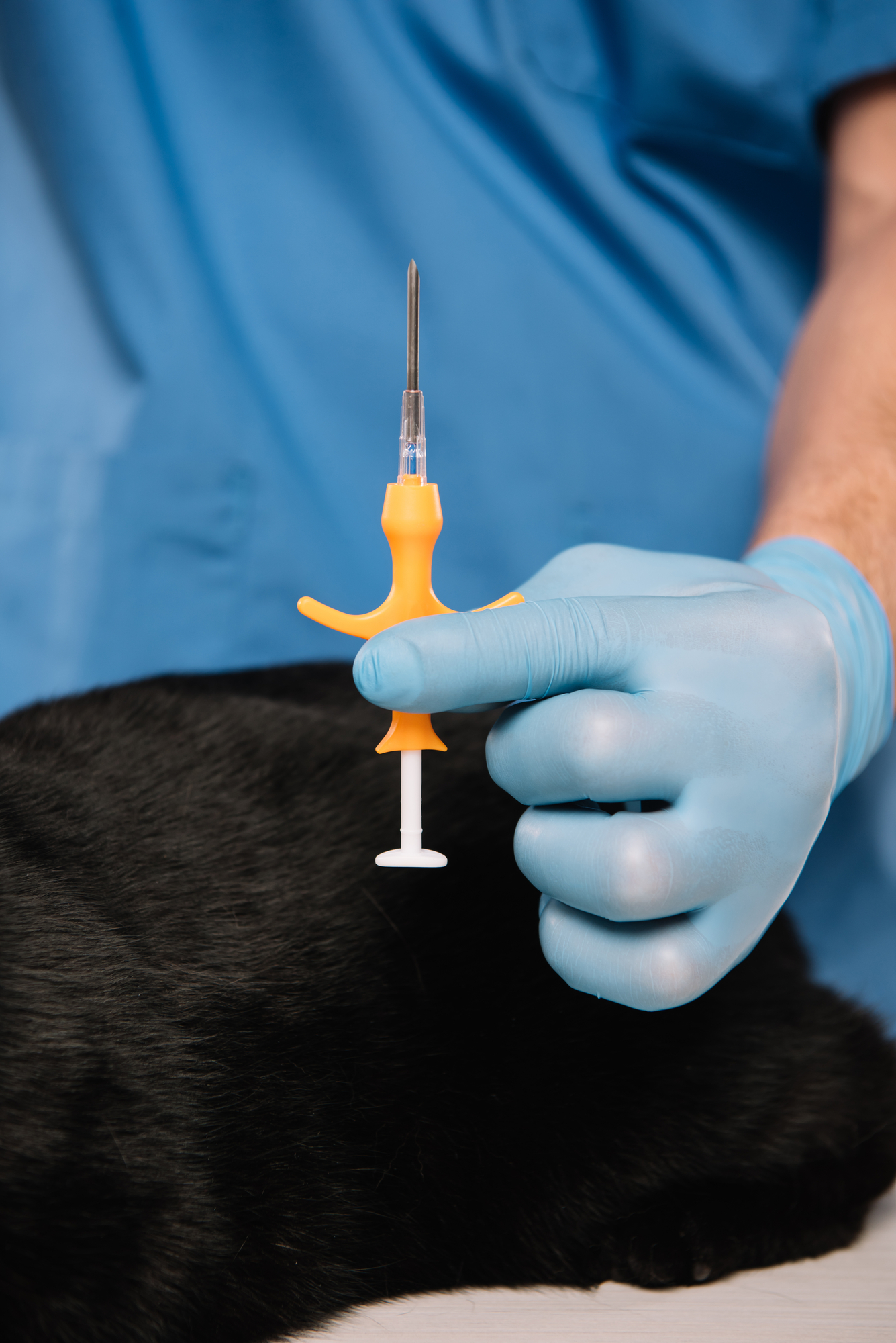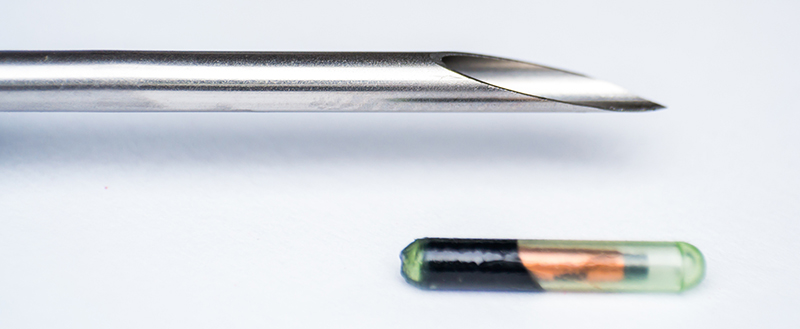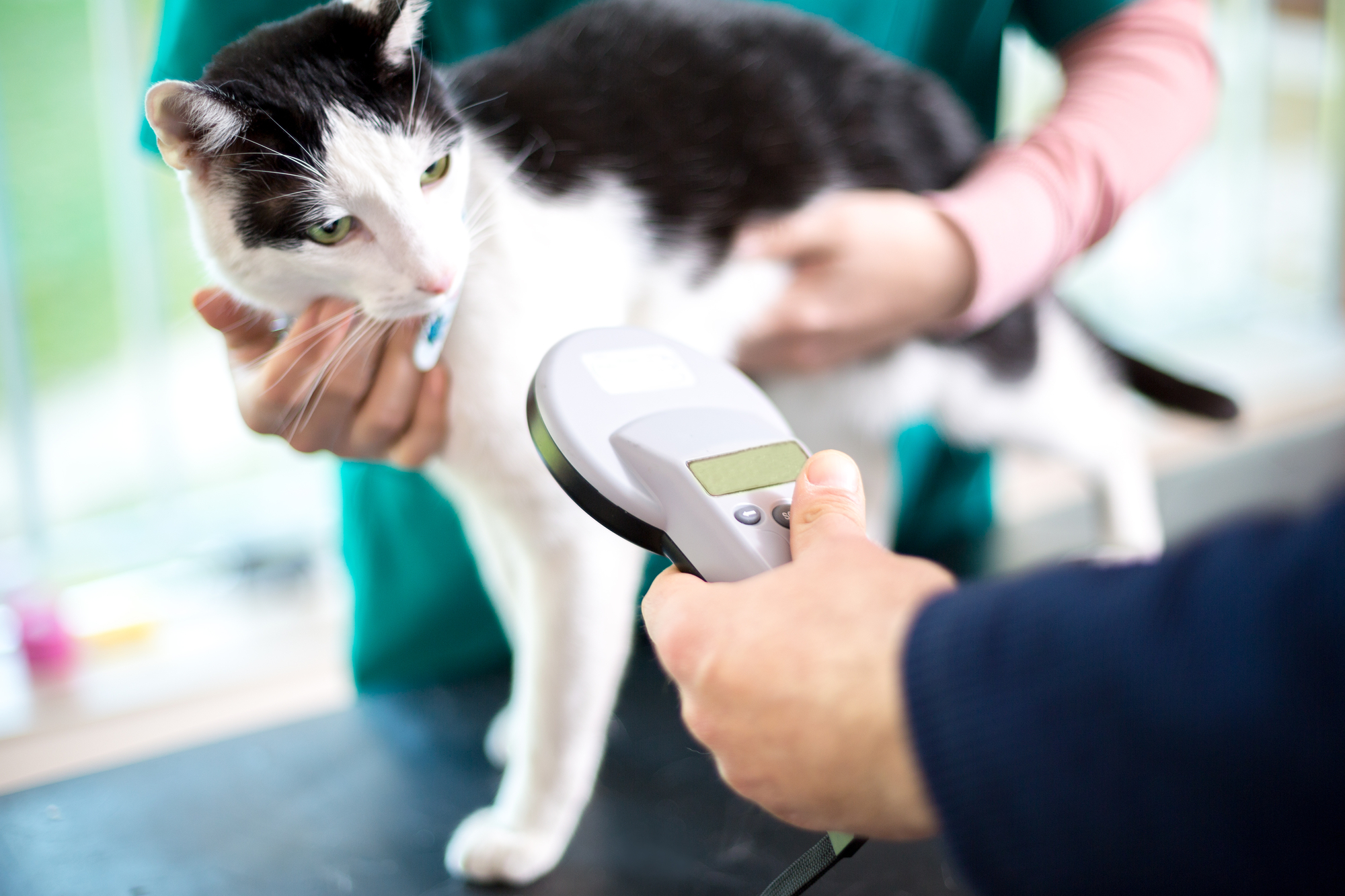
A microchip can help find a lost pet
Read Time: 3 minutes
Picture this: Your pet manages to get out of your home, they slip out of their collar with your phone number and name, and completely disappear. It’s a scary situation to find yourself in as a pet owner. But with one small change, you can increase the odds of bringing your pet home safely. In fact, over 52% of dogs are returned to their owners thanks to a microchip.
Are Microchips Safe for Pets?
Microchips are completely safe for pets and have become standard practice. Many pet owners request microchipping when they bring their pet in for a spay or neuter. This procedure is performed in the clinic using a sterile, pre-loaded syringe.
The standard microchip placement for dogs and cats is behind the neck and between the shoulder blades. It’s safe, sterile, and quick. Plus, one microchip lasts a lifetime so there’s no need to worry about boosters.
What Animals Can Be Microchipped?
Dogs and cats should be microchipped regardless of whether they reside mostly outside or inside your home. Rabbits, horses, ferrets, and even parrots can be microchipped, among plenty of other domestic pets.
While dogs and cats are the most common species to be microchipped, you can ask your vet about microchipping any species of pet you might own. You’d be surprised by the types of animals who are being microchipped.
How is the Microchip Inserted?
The microchip is inserted using a sterile, pre-loaded syringe. The injection site for dogs and cats is most commonly between the shoulder blades.

If your fur baby was adopted from a shelter or rescue, there’s a strong chance he or she has already been microchipped. Standard practice for shelters is to microchip upon intake and examination of all rescued animals.
Benefits of Microchipping Dogs and Cats
But why should you microchip your pet? Pet microchips come with a number of benefits. While these benefits are only capitalized on in emergency situations if your pet becomes separated from you, it’s important to prepare for a situation where that’s the case. Better safe than separated permanently.
Let’s check out the benefits of microchipping your dog or cat:
- Permanent identification if your pet wanders off and is found by an individual or shelter
- Ability to reconnect with your pet after a natural disaster
- Lifetime identification as microchips are permanent
- Quicker reconnection with pets who may suffer from diseases requiring medication
How Do I Find My Pet Using Their Microchip?
You can’t track your pet’s location using a microchip but the person who finds your pet can use it to find you. When a pet is taken to a veterinary clinic, rescue, or shelter they will be scanned for a microchip.
If a registered microchip is located it will give an identification number used to pull up your pet’s profile. This profile will include your name and contact information.
Does My Pet Need a Collar and Tag If They’re Microchipped?
More identifying markers are not a bad thing. In order to scan a microchip, you need a microchip scanner. The average household does keep a microchip scanner in their junk drawer so it’s wise to have a more easily accessible identifying mark on your pet.
Double up with a collar and tag and a microchip to give your pet the best chances of reuniting with you.
Pet Microchipping Myths

There are always those who support and those who hate pet microchipping. Let’s debunk some common microchipping myths to stop the spread of false information.
Myth #1 – Indoor Cats Don’t Need Microchips
Indoor cats can get out of a house. With that in mind, it’s always wise to prepare for the worst. Cats have a low return-to-owner rate, but inserting a microchip ups their chances of making it home.
Your pet many never get lost. But, by preparing with a microchip, you can rest assured the odds of your pet making it home are greatly improved if they ever do get lost.
Myth #2 – Microchips Are Painful to Implant
Microchips are about as painful as having blood drawn. Many owners have their pet microchipped during their spay and neuter procedures while they are under anesthesia.
Myth #3 – Microchips Allow You to GPS Track Your Pet
Unfortunately, microchipping your pet doesn’t give you an automatic GPS tracker. If your pet is lost the shelter or individual you find them will have to scan their neck for a microchip. However, microchipping scanning is a standard practice now which means it’s unlikely your pet won’t have their microchip scanned once found.
If you’re dead set on finding a GPS tracker for your pet, there are a number of options on the market. These have a higher initial and maintenance cost than other pet identification methods.
Is Microchipping Your Pet Expensive?

Microchipping costs generally fall below $75 for initial implantation. This is a one-time fee for the application of the microchip by the veterinarian.
Most veterinarians will scan for an existing microchip before inserting a new one. This is great if you’re unsure if your pet has been microchipped by previous owners or from the entity they were adopted from. It will also cut the cost of an unnecessary microchip and eliminate potential confusion of ID numbers if your pet is scanned for a microchip in the future.
Can My Pet’s Microchip Number Expire?
Your pet’s microchip number won’t expire. However, you’ll want to keep the pet’s listing up-to-date. Keep track of the registering agency where your pet’s profile is held and keep it updated after you move to a new home or get a new phone number.
It’s also wise to keep an eye on the terms of your chosen registry agency. Some are free, some require a one-time fee, and some require annual payments to keep updated.
How to Keep Your Pet’s Information Updated

If you move or update your phone number you’ll need to update your pet’s profile on the correct registry.
If you’re unsure where your pet is registered, enter the microchip number in the AAHA Universal Pet Microchip Lookup. This will direct you to the correct registry or manufacturer of the chip. Use the results of this lookup tool to track down the registry or manufacturer you can update your pet’s profile with.
Some common pet microchip registries include:
- PetLink
- Michelson Found Animals
- Homeward Bound Pet
- PetKey
- AKC Reunite
- PETtrac
- 24PetWatch
- Marrsmicrochip
If you have questions or concerns about microchipping, or would like to schedule an appointment to have your pet microchipped, contact us.




